The manufacturing landscape is rapidly evolving, driven by advancements in technology and the need for more efficient production methods. The Mx Series stands out as a revolutionary solution, enabling manufacturers to optimize their operations and reduce costs significantly.

According to a recent report by the International Federation of Robotics, the global market for industrial robots is projected to reach $70 billion by 2025, highlighting the urgent need for innovative automation solutions like the Mx Series. As businesses strive for lean manufacturing practices, the Mx Series facilitates greater flexibility, scalability, and precision, which are essential for meeting the dynamic demands of today’s market.
By leveraging the capabilities of the Mx Series, manufacturers can not only enhance productivity but also ensure a competitive edge in an increasingly automated world.
In today’s fast-paced manufacturing landscape, the Mx Series automation solutions are transforming traditional production processes into highly efficient, streamlined operations. By integrating cutting-edge technology with flexible automation systems, manufacturers can significantly reduce downtime and enhance productivity. The Mx Series is designed to adapt to various manufacturing environments, allowing for quick adjustments as production demands shift. This adaptability ensures that companies can respond to market changes with agility, minimizing the lag time between production shifts and meeting customer needs promptly.
Furthermore, the Mx Series is not just about speed; it also emphasizes precision and quality. With advanced sensors and real-time monitoring capabilities, manufacturers can maintain high standards without compromising on efficiency. This technology enables continuous feedback loops, allowing for instant corrections and real-time adjustments in processes. As a result, manufacturers can achieve consistently superior product quality while optimizing resource utilization, driving down costs, and fostering sustainable practices. The Mx Series is truly a game-changer that redefines what is possible in modern manufacturing.
The Mx Series presents a transformative approach to enhancing efficiency and reducing costs in modern manufacturing environments. By leveraging advanced AI models, manufacturers can significantly improve their operational performance across various domains. According to industry reports, integrating data-driven methodologies can lead to a reduction in operational costs by up to 30%, as companies adopt automated systems for supply chain management, warehousing, and logistics. This shift not only streamlines processes but also addresses the high computational costs associated with deploying large AI models in real-world applications.
Moreover, the Mx Series is designed to optimize resource allocation, which is crucial in the context of rising computation demands. Amid escalating inference costs—reported to have increased twofold with the adoption of multimodal models—efficient computing capabilities are essential. Research suggests that utilizing scalable and efficient AI frameworks can mitigate these costs, allowing manufacturers to operate within tighter budgets while still accessing cutting-edge technology. Consequently, the Mx Series stands out as a foundational tool that empowers manufacturers to enhance productivity and sustain competitive advantage in an increasingly complex market landscape.
Integrating the Mx Series into existing manufacturing systems can significantly enhance operational efficiency and productivity. The Mx Series, known for its advanced automation capabilities, allows for seamless integration with legacy systems. According to a recent report from Industry Week, manufacturers leveraging integrated systems see a productivity increase of up to 25%. By adopting the Mx Series, businesses can reduce downtime, optimize resource allocation, and foster agile manufacturing processes.
Tip: To ensure a smooth integration, conduct a thorough assessment of your current systems and identify any potential bottlenecks. This proactive step can help in tailoring the Mx Series features to best fit your operational needs.
Furthermore, the Mx Series offers real-time analytics and data visibility, enabling manufacturers to make informed decisions rapidly. A study by McKinsey & Company reveals that companies using data-driven insights can reduce operational costs by up to 15%. This unique advantage allows manufacturers to respond quickly to market demands and optimize production schedules effectively.
Tip: Implement a phased approach when integrating Mx Series into your operations. Start with pilot projects to evaluate performance and scalability before a full-scale rollout. This strategy minimizes risks associated with significant system changes and ensures smoother adoption across the board.
This bar chart illustrates the various advantages of integrating the Mx Series into existing manufacturing systems, showcasing improvements in efficiency, cost savings, and production capabilities.
The Mx Series is making significant strides in the realm of smart manufacturing, reflecting a broader trend towards automation and intelligent production systems. According to a report by Markets and Markets, the smart manufacturing market is expected to grow from $200 billion in 2020 to over $500 billion by 2025, driven by the integration of advanced technologies like IoT, AI, and data analytics. The Mx Series plays a crucial role in this evolution by providing manufacturers with the necessary tools to enhance operational efficiency, reduce downtime, and optimize supply chain management.
As industries move towards increasingly automated processes, the Mx Series stands out with its exceptional adaptability and scalability. Companies can leverage its capabilities to incorporate smart sensors and interconnected machinery, facilitating real-time monitoring and analysis. A study by McKinsey indicates that implementing smart manufacturing solutions can improve productivity by 20-30%, significantly impacting bottom-line results. The Mx Series embodies this trend by enabling manufacturers to harness real-time data to make informed decisions, streamline production workflows, and ultimately create a more agile manufacturing environment responsive to market demands.
| Feature | Advantage | Impact on Manufacturing | Future Trend |
|---|---|---|---|
| Automation | Increased efficiency | Reduced labor costs and time | Growth in automated processes |
| Data Analytics | Improved decision-making | Optimized production lines | Increased reliance on analytics |
| IoT Integration | Enhanced connectivity | Real-time monitoring capabilities | Increased smart device use |
| Customization | Tailored solutions | Better alignment with customer needs | Rise of mass customization |
| Sustainability | Reduced environmental impact | Better compliance with regulations | Focus on eco-friendly practices |
In recent years, the Mx Series has emerged as a transformative force in modern manufacturing, significantly enhancing operational efficiency and flexibility. Case studies across various industries illustrate the power of this innovative technology. For instance, a manufacturing plant in the automotive sector reported a 40% reduction in assembly time after integrating the Mx Series. This was attributed to the series' ability to streamline workflows and minimize bottlenecks, ultimately leading to faster production cycles.
Another case study in the electronics industry showcased a significant boost in product quality and compliance rates. After implementing the Mx Series, the facility observed a 30% decrease in defect rates, aligning with findings from a recent report by the International Society of Automation, which states that automation technologies can reduce errors by up to 50%. These implementations highlight the Mx Series' role in driving not only productivity but also improving the bottom line through enhanced quality assurance and operational transparency.
Moreover, companies leveraging the Mx Series have reported increased adaptability to market demands. A textile manufacturer experienced a 25% increase in their ability to pivot production schedules based on consumer trends, thanks to the real-time data capabilities integrated within the Mx platform. These success stories underscore the impact of the Mx Series in fostering a more responsive and agile manufacturing environment, critical in today's fast-paced market landscape.








